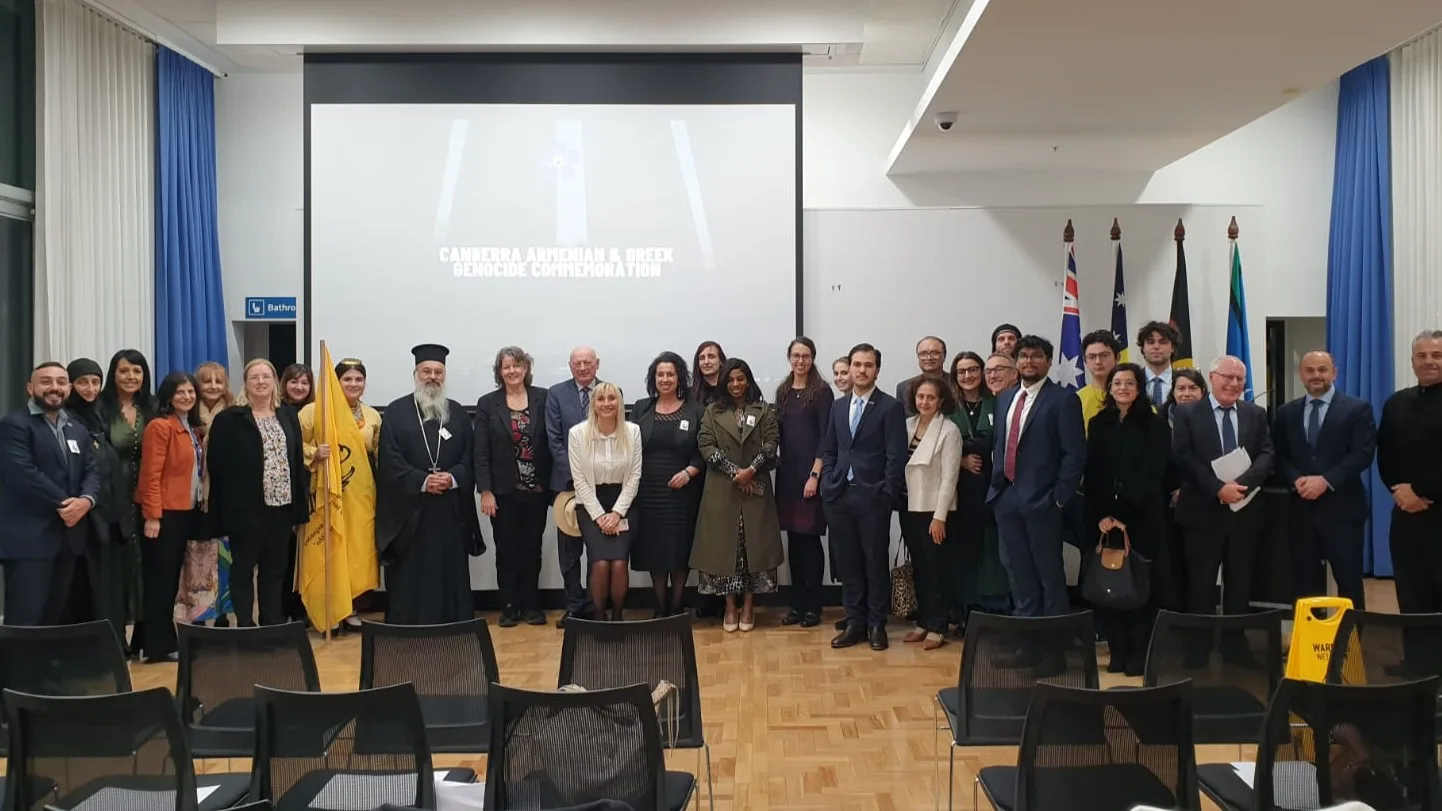The anniversary of the Armenian and Greek Genocides was solemnly commemorated at the ACT Legislative Assembly in Canberra on Tuesday, 27 May 2025, with powerful calls for truth, justice and formal recognition by the ACT Government.
Organised by the Armenian National Committee of Australia – Canberra Branch and the Canberra Association of Pontos ‘Trapezounta,’ the evening brought together politicians, diplomats, academics, and community leaders to honour the memory of the 2.5 million Armenians, Assyrians, and Greeks killed by the Ottoman Empire between 1915 and 1923.
In attendance were several Members of the ACT Legislative Assembly, including Peter Cain MLA, Caitlyn Tough MLA, Chiaka Barry, and Fiona Carrick, alongside dignitaries such as His Excellency Antonis Sammoutis (High Commissioner of the Republic of Cyprus to Australia), Her Excellency Dianela Pi (Ambassador of Uruguay), and The Right Reverend Dr Mark Short (Anglican Diocese of Canberra and Goulburn).
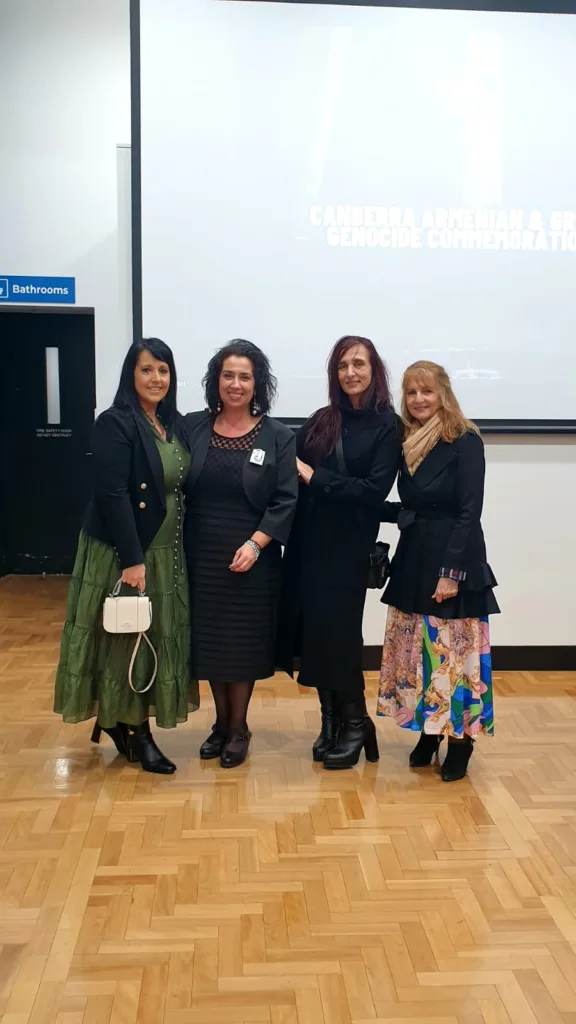
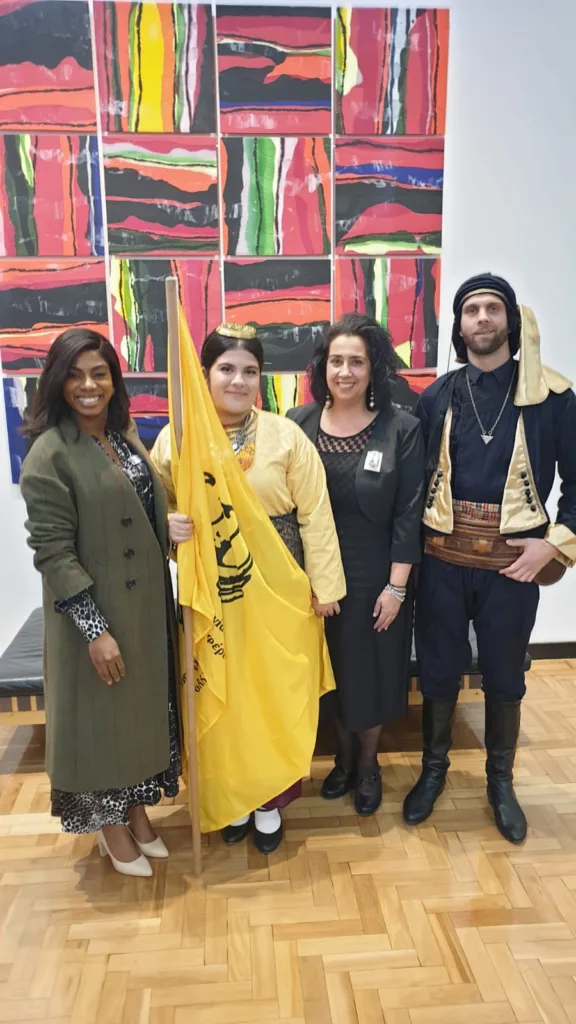
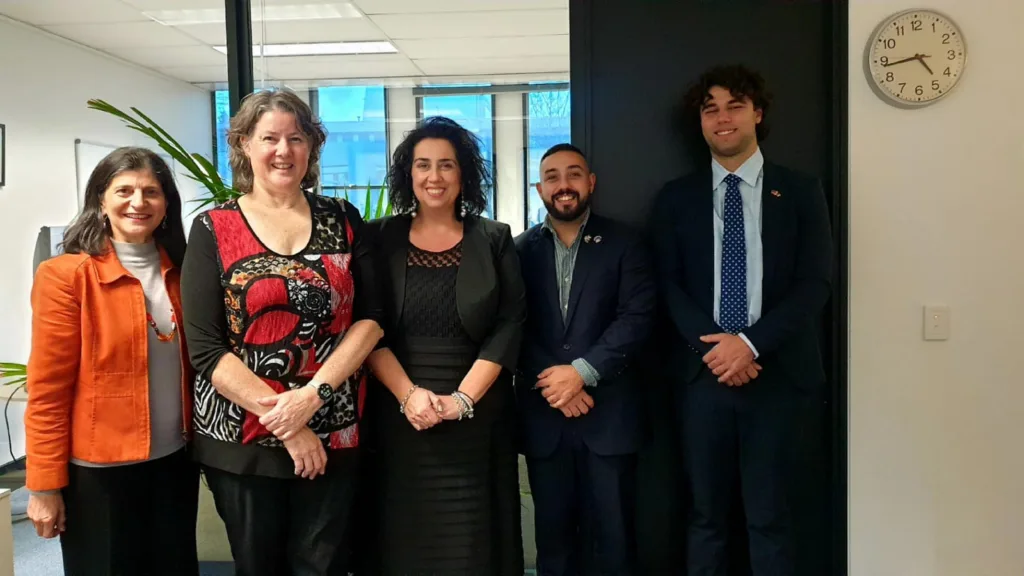
Representatives from ANU, UNSW, SEKA (Justice for Cyprus), and the Executive Council of Australian Jewry also participated, reflecting the event’s broad interfaith and intercultural support.
Professor Bruce Scates, historian, author, and documentary filmmaker from the Australian National University, delivered the keynote address. Drawing on decades of work communicating history to broad audiences, Professor Scates reflected on the enduring legacy of genocide and the power of remembrance.
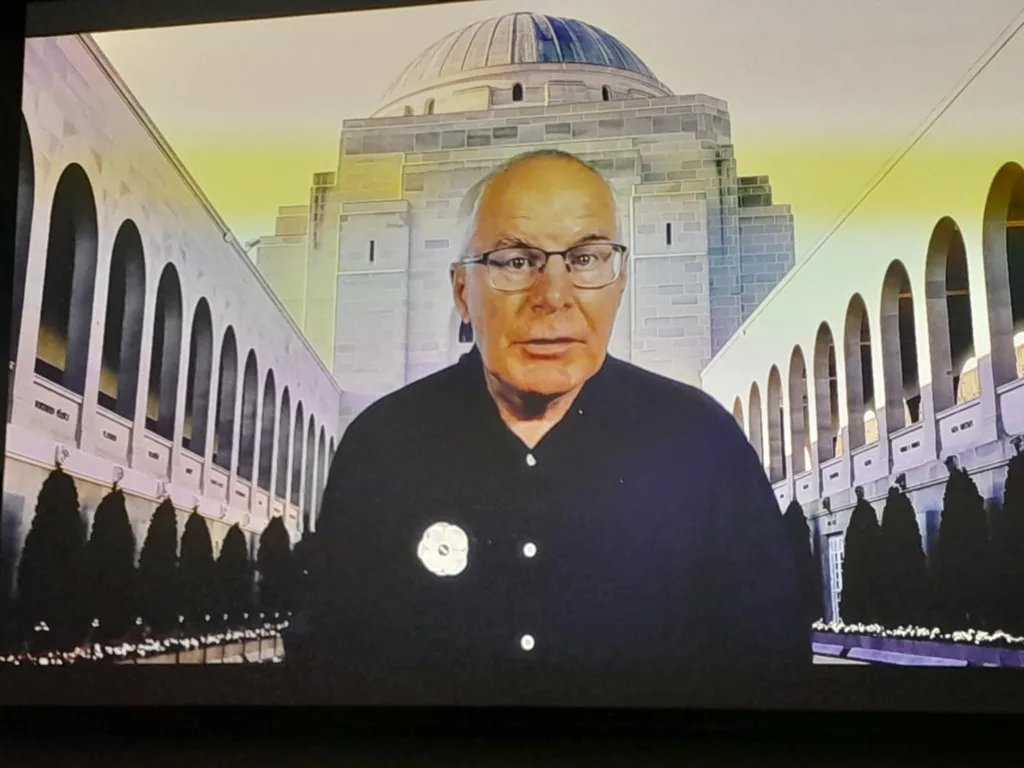
The event also featured the recorded testimony of Armenian Genocide survivor Verjin Cholakian, offering a rare and deeply moving personal perspective on the atrocities.
A highlight of the evening was the Advocacy Address by Sebastian Majarian, Political Affairs Director of the Armenian National Committee of Australia, who issued a clear call to the ACT Government to follow the lead of other states and formally recognise the Genocides.
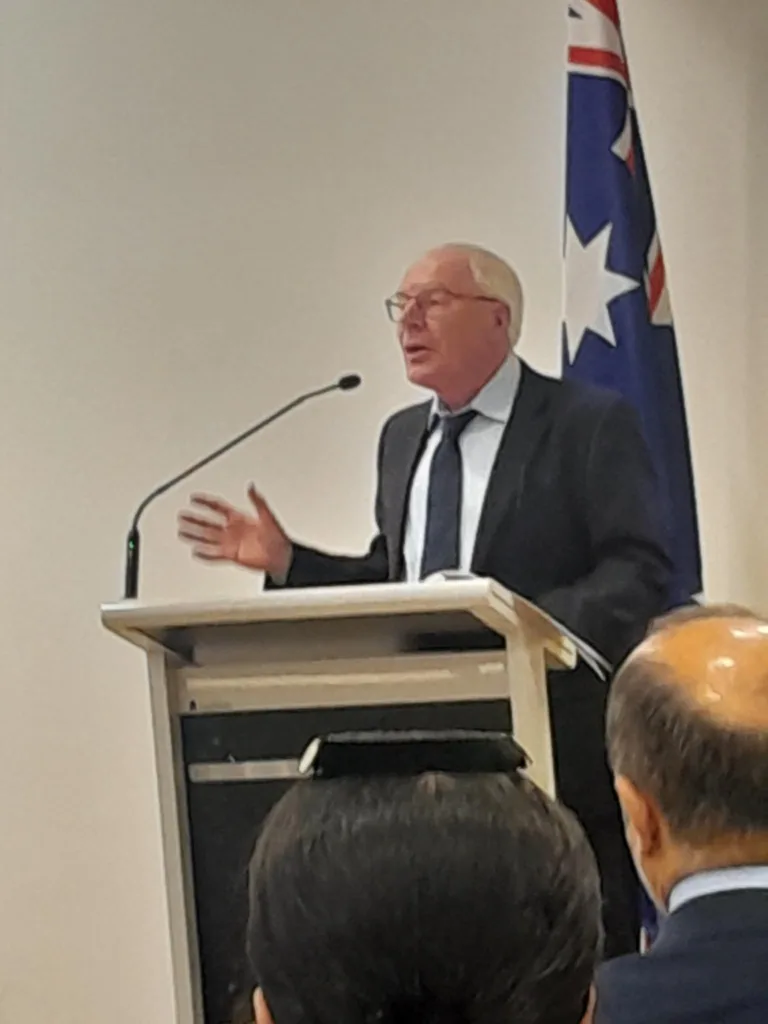
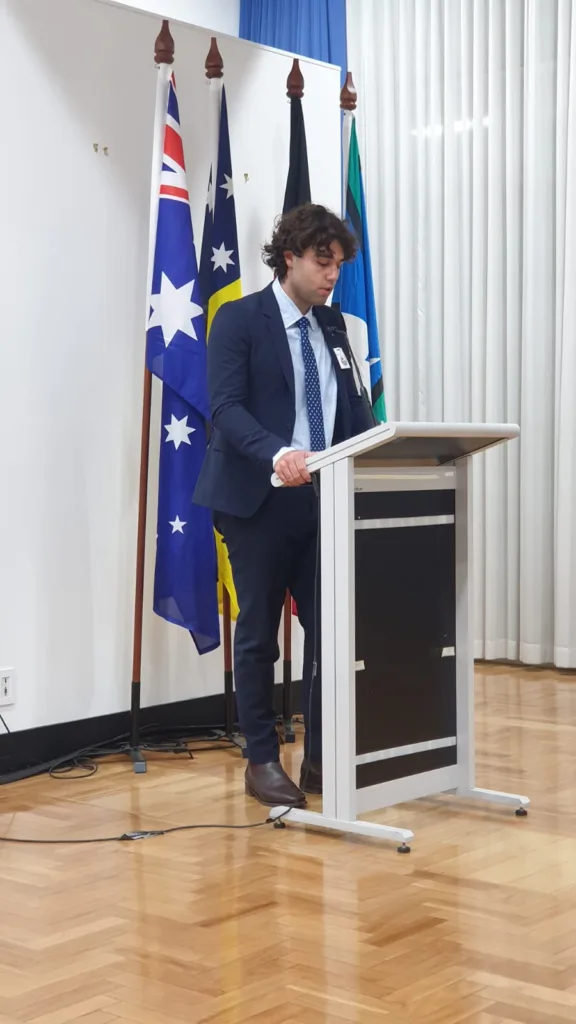
“Tonight, I stand before you not only to reflect on the progress we’ve made, but to mark a new chapter — one that brings education, advocacy, and memory together,” Majarian said.
“Together, we are not just remembering genocide. We are confronting it. Naming it. Teaching it. And demanding that our nation does the same.”
Majarian highlighted recent progress in Victoria, where bipartisan support for recognition is growing, and called out national leaders for their failure to explicitly use the term “genocide” in recent statements.
“What is clear is that our nation’s leaders cannot summon the courage to speak one word: genocide,” he said. “Their silence is not neutral — it is betrayal.”
He also announced the launch of the Joint Justice Initiative’s inaugural Reverend James Creswell Essay Competition, in partnership with the Australian Institute of Holocaust and Genocide Studies. The competition will encourage Year 9 and 10 students to reflect on justice, memory, and history, offering $1,500 in prizes to promote youth engagement with genocide education.
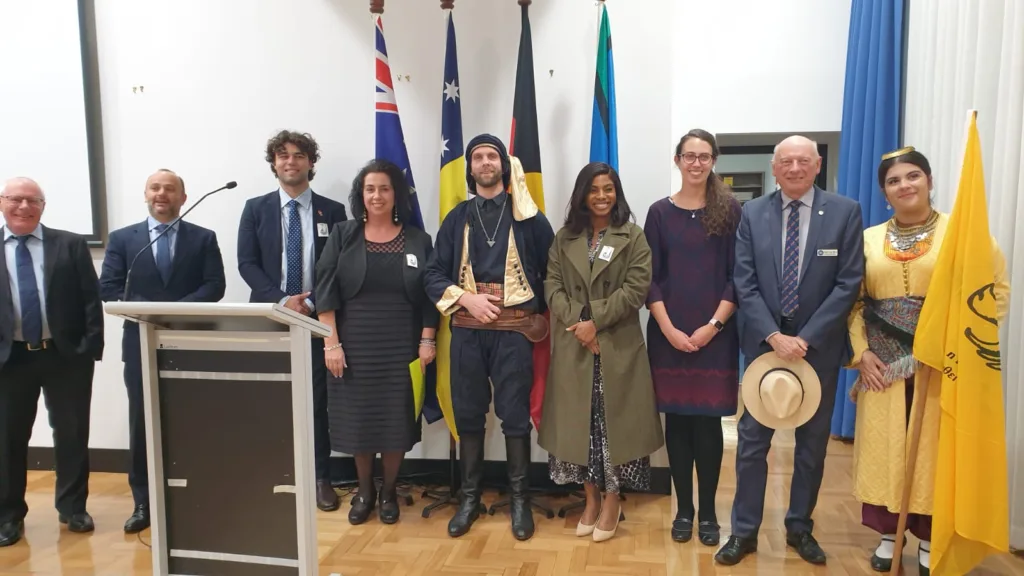
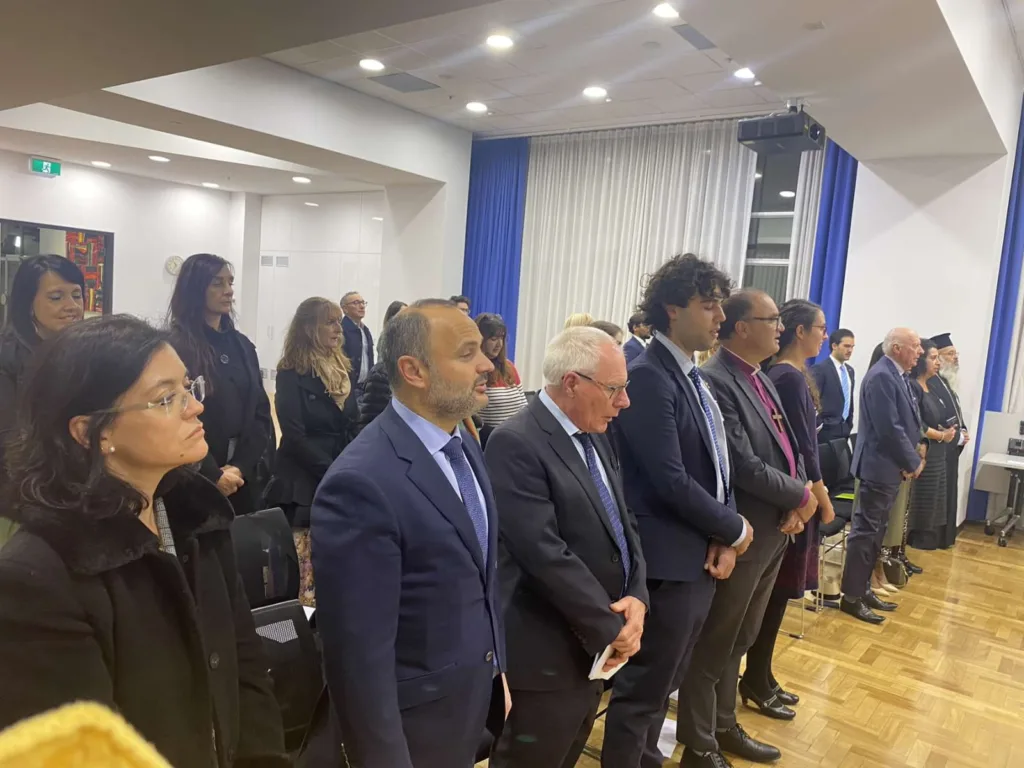
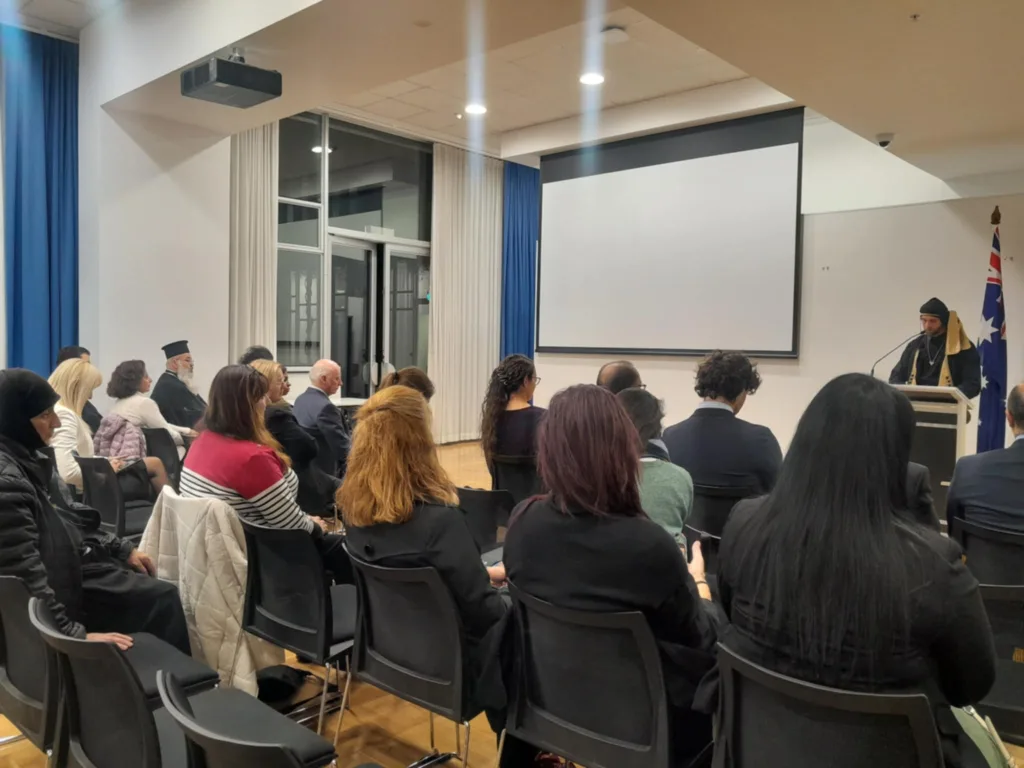
Angie Triandafillou, President of the Canberra Association of Pontos, delivered the vote of thanks and honoured the diverse coalition committed to recognition and remembrance.
“As we gather today, we are reminded that this work is far from over,” she said. “While New South Wales, South Australia, and Tasmania have formally recognised the Armenian, Assyrian, and Greek Genocides, we continue our efforts to see the Australian Capital Territory do the same. Recognition matters. It is not only a matter of historical accuracy—it is a moral imperative.”
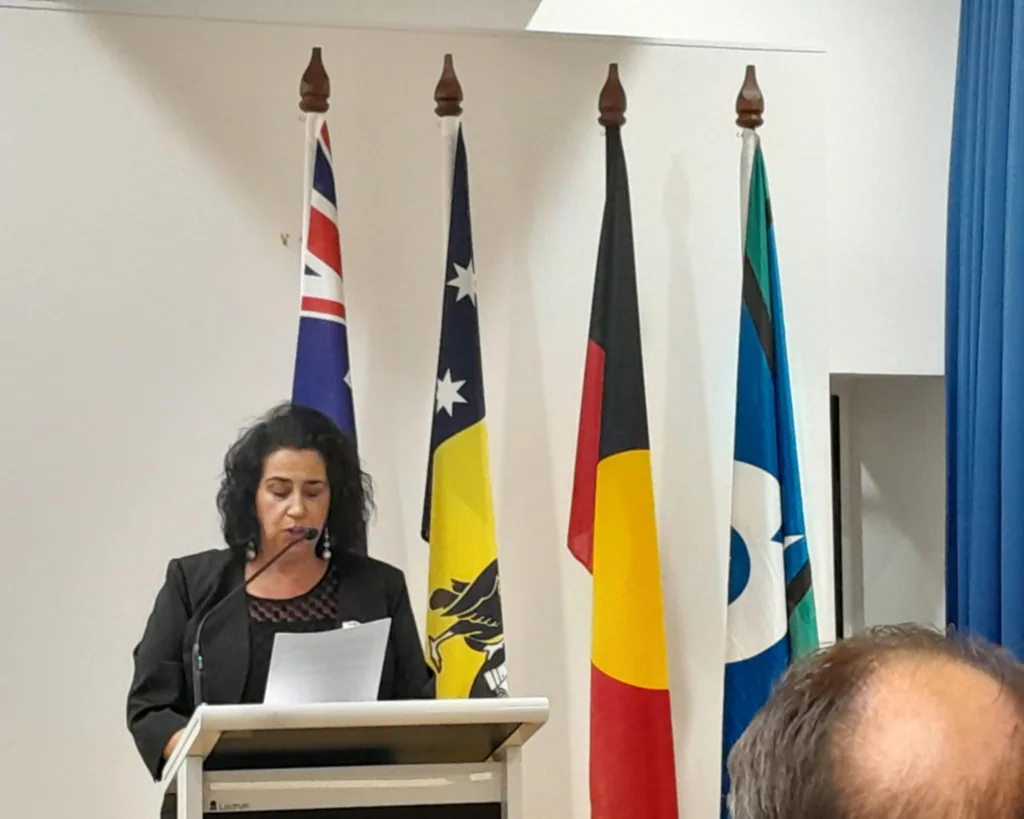
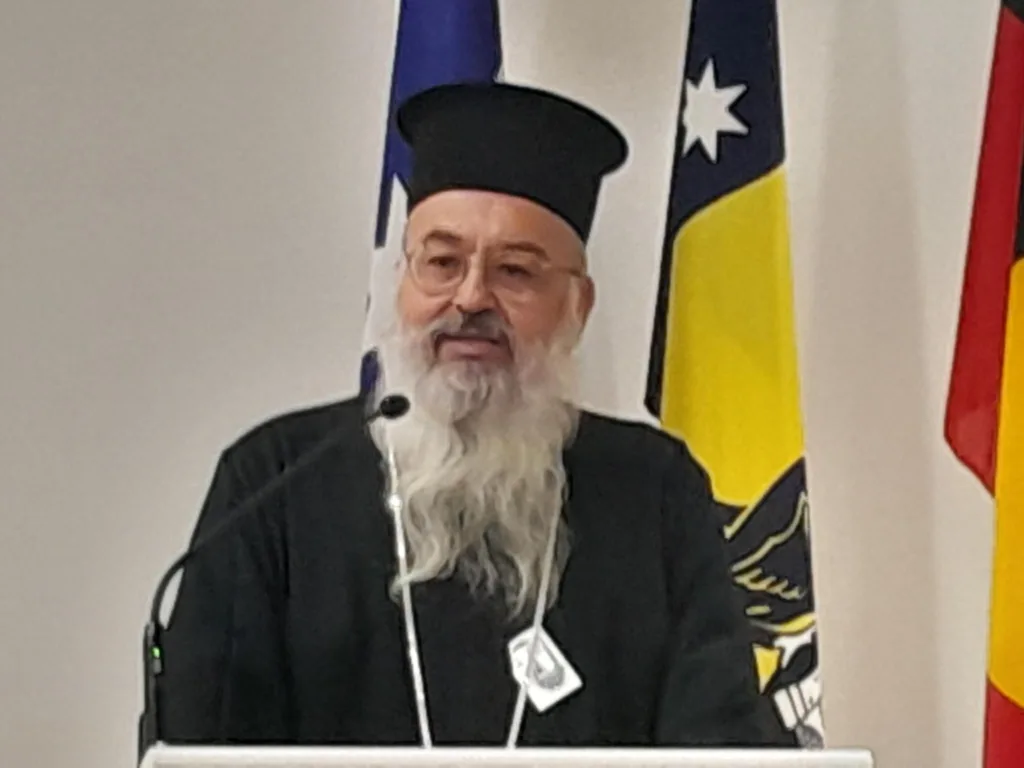
The evening concluded with a closing prayer from Father Petros Kipouros of the St Nicholas Greek Orthodox Church in Canberra.
With momentum for recognition continuing to build, especially within the ACT’s political and academic circles, organisers and community members remain hopeful that Canberra will soon join other Australian states in formally acknowledging the Armenian, Assyrian, and Greek Genocides.
